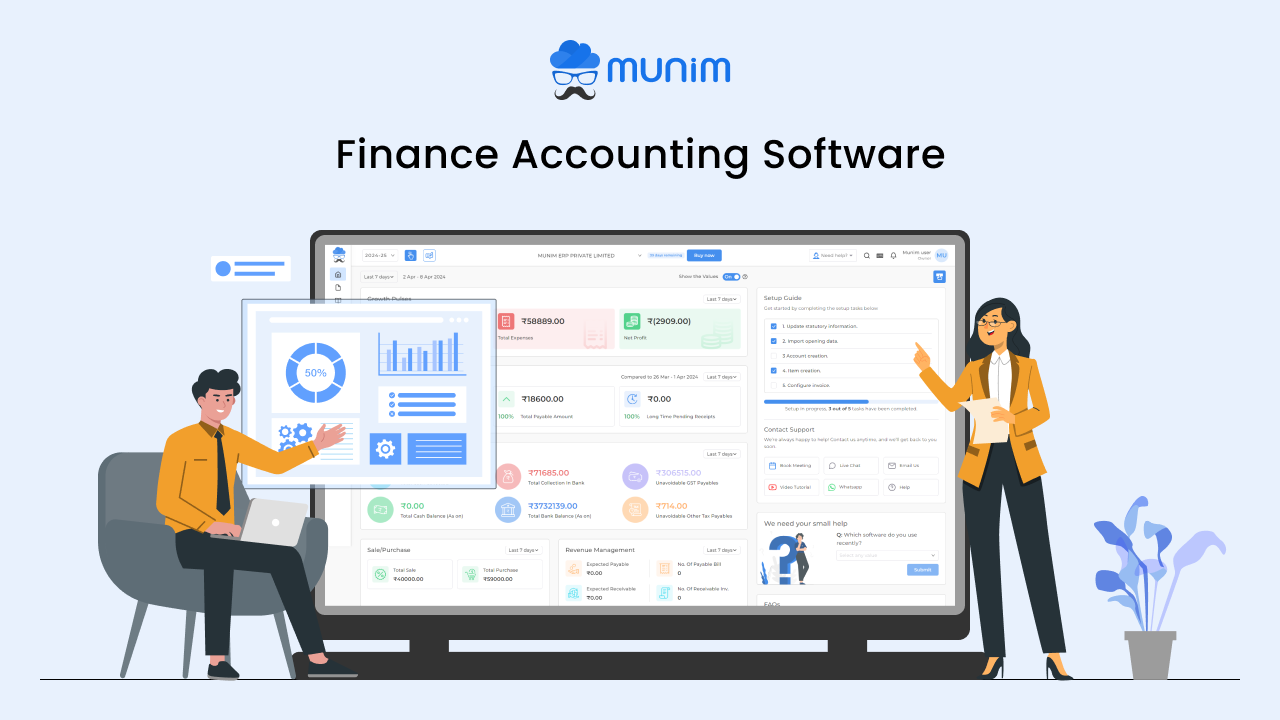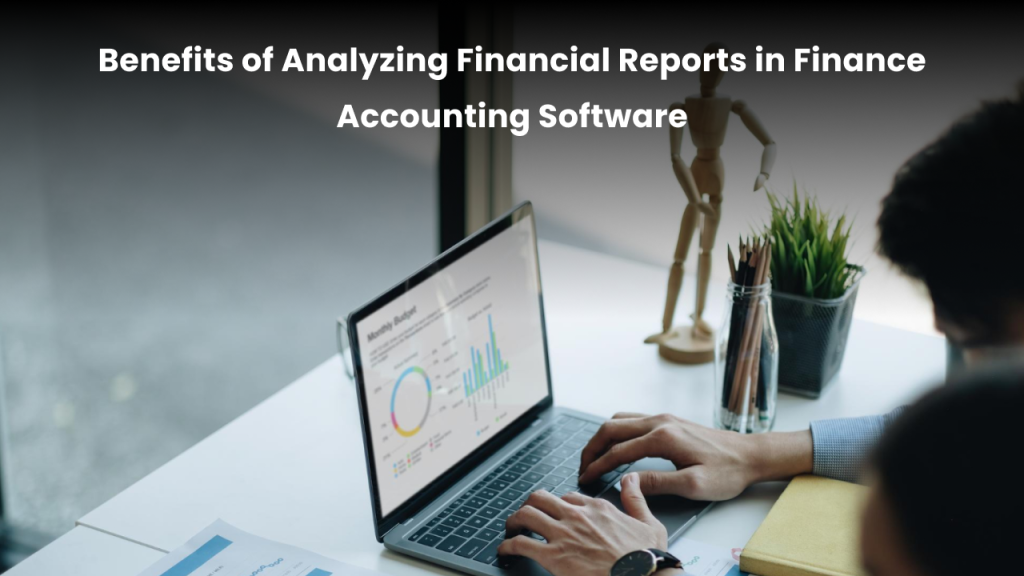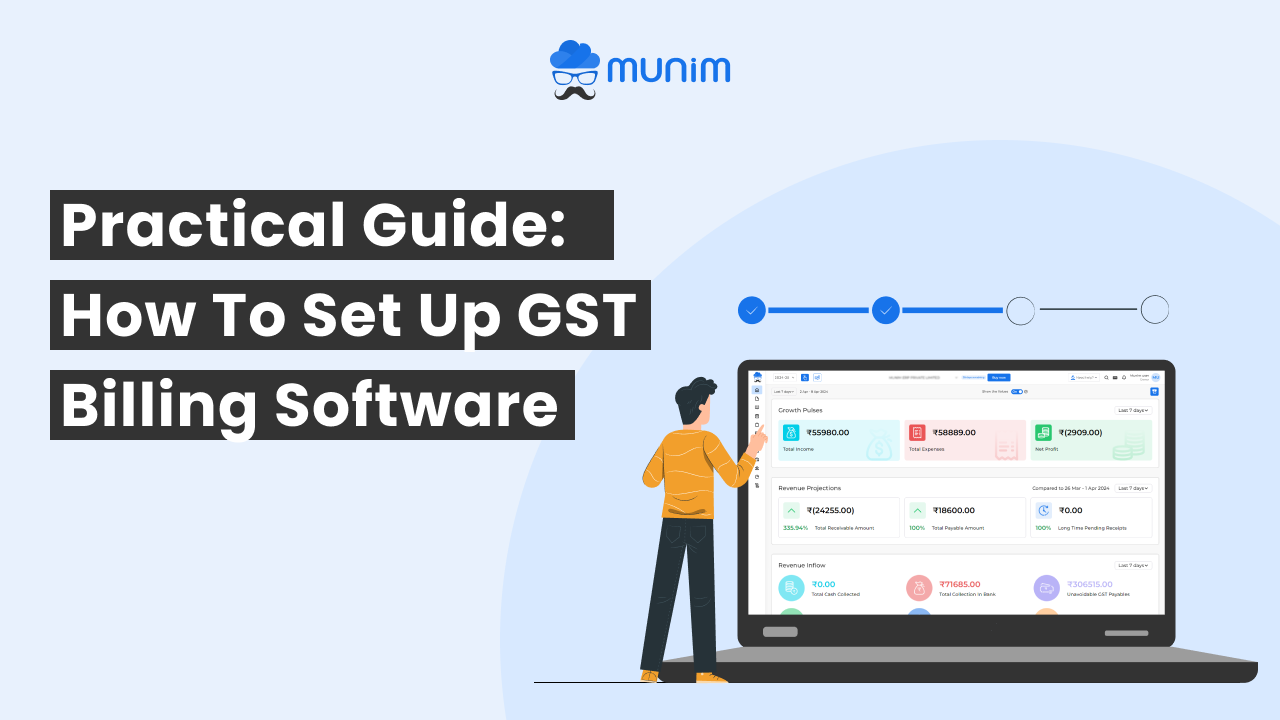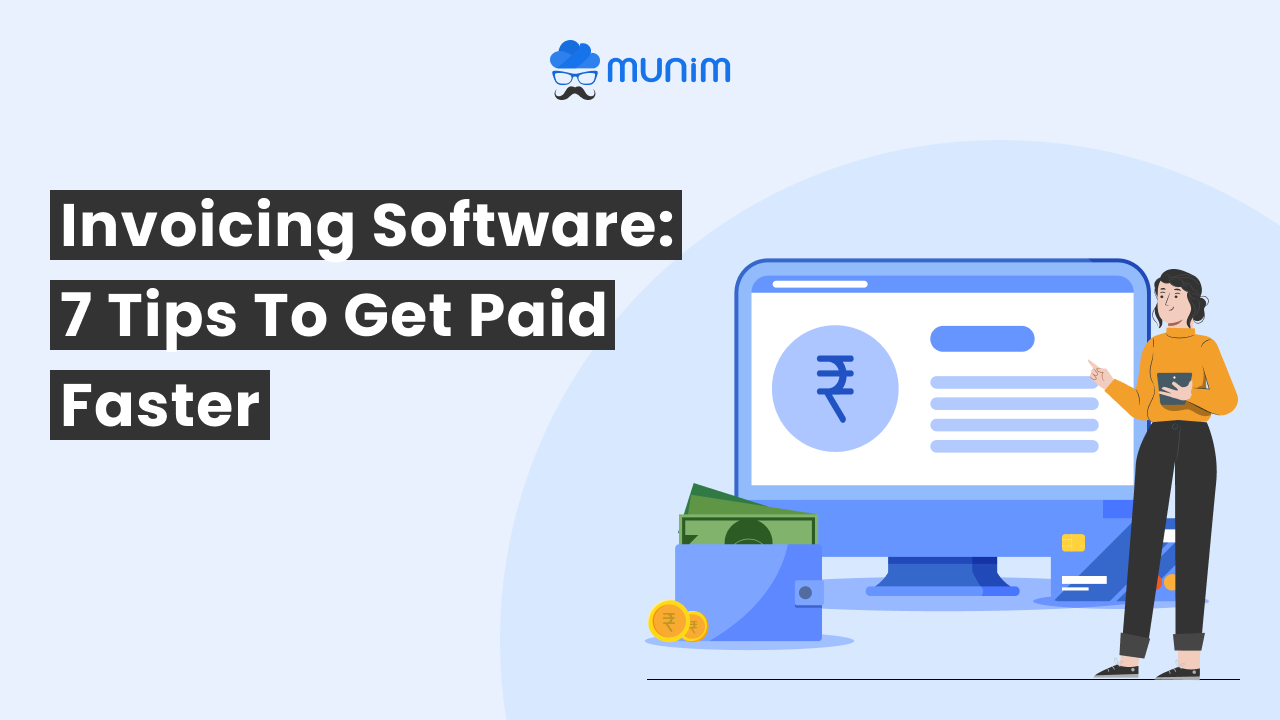The Power of Reports in Finance Accounting Software

In today’s era, data is deemed new gold. Large enterprises and MNCs are leveraging data analytics tools to gain insights into marketing, sales, and especially financial management. As technology evolves daily, data analytics for financial management is becoming more manageable, and now, thanks to finance accounting software for small businesses, such facilities are accessible for micro, small, and medium enterprises in India.
Benefits of Analyzing Financial Reports in Finance Accounting Software

Typically, businesses have to spend extra money to generate financial reports. In modern accounting software, financial reporting is built, saving you a few thousand bucks yearly. The following are the business benefits of studying financial reports in accounting software:
Enhanced Productivity
Automated financial reporting in business accounting software eliminates manual data entry, allowing you to save precious person-hours and invest in more essential tasks.
The automated system of recording and presenting financial data in reports is a boon for decision-makers, as the data compiled is highly accurate and readily available whenever they want it.
It also enables apex authorities to take swift data-backed decisions without delays in contingency-like situations.
Better Risk Management
Financial reporting allows strategy makers and business owners to mitigate risk by making the right decisions based on the data provided in financial reports. This enables businesses to navigate challenging situations easily or foresee challenges beforehand.
Real-time Data Analysis
With the aid of automated financial reporting in business accounting software, you can have your business’s essential financial data updated minute by minute. This feature empowers decision-makers to have a 360-degree view of the company’s financial health on their screen, enabling them to strategize with the apex team.
Untethered Collaboration
With accounting software, you can collaborate with your team members no matter where they are in the world. They can still access financial data. This is how you can get valuable feedback from your team no matter where they are situated.
Facilitates Benchmarking
Financial reports offer a new perspective on business by allowing you to benchmark your company’s financial performance against industry standards, competitors, or historical data.
This benchmarking lets investors determine whether your company is investable. However, directors, board members, and CEOs also leverage this information to rectify financial performance issues within the company.
Access to Financial Assistance
Accurate financial reporting with business accounting software is essential for businesses seeking funds from investors or loans from financial institutions. Automated financial reports are reliable, inculcating confidence in lenders and investors to invest in your company.
Stringent Budgeting
When you compile historical financial data along with real-time data on sales, inventory, demand, expenses, and cash flow, you can create more accurate budgets and forecasts. This leads to higher profitability and overall growth for your business.
Prevent Fraudulent Activities
When you regularly study your company’s financial data closely, you can find any abrupt or sudden negative patterns unfolding due to fraud or failure of your overall business strategy.
This is usually identified as fraudulent activity. A number of private and public-listed companies have fallen prey to financial fraud.
Here are financial KPIs you should keep track of to mitigate any financial risk or to identify inefficiencies:
- Gross Profit Margin
- Net Profit Margin
- Working Capital
- Operating Expense Ratio
- Return on Assets
- Return on Equity
- Cash Conversion Cycle
- Vendor Payment Error Rate
To Calculate Tax Liability
Another benefit of automated financial reporting is that it will assist your organization in calculating the tax liability the government owes to you.
To evaluate the tax liability of your company, you need to refer to the following financial statements:
- Balance sheet: List of all assets, liabilities, equity holding and net worth in a given period
- Different financial statements that record all the types of expenditures
By studying these financial statements, you can determine what expenses should be deducted from gross income and calculate the tax liability based on the gross income statement.
Fostering Trust
Financial reports enhance a business’s economic performance and foster trust among investors, shareholders, and the board of directors by promoting transparency.
With these statements, stakeholders can be confident that the company is on the right track and that there are no accounting discrepancies or fraudulent activities, thanks to the robust security features of Munim’s business accounting software.
Get Started with Financial Reporting
So, after reading this blog on the power of financial reporting with business accounting software, we hope you understand the importance of analyzing and studying your company’s financial reports.
If you are seeking finance accounting software for small businesses with user-friendly financial reporting capabilities and dedicated customer support, you’ve come to the right place. Munim business accounting software offers 35+ business reports, empowering you with valuable financial insights. For more information or assistance, please don’t hesitate to contact our support team at +91 9898661036.
FAQs on Financial Reporting with Business Accounting Software
Q. How does business accounting software help in financial reporting?
- Business accounting software prepares various accounting reports for business owners, ensuring data accuracy and timely reporting. Adopting such accounting software enables you to make data-backed decisions and makes them relatively more reliable.
Q. What are the five critical financial reports?
- Following are the five critical financial reports that a business owner should study regularly:
- Profit & Loss statements
- Balance sheet
- Cash-flow statement
- Tax return
- Aging report
Q. What are the elements of financial reporting?
- Following is the list of different types of elements in financial reports:
- Revenue
- Asset
- Liabilities
- Expenditure
- Fund balance





